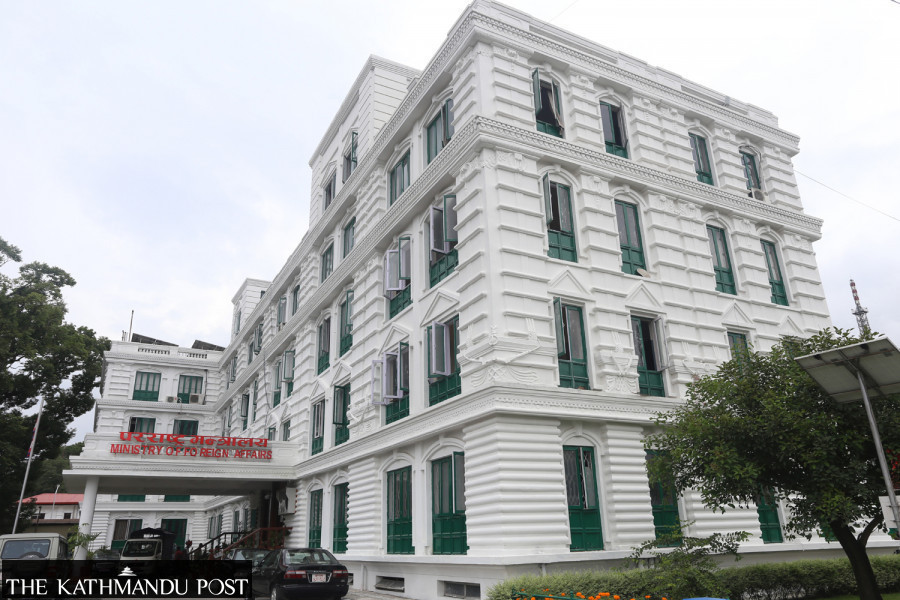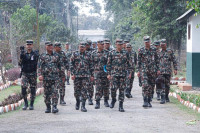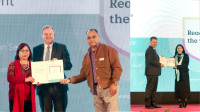National
Nepal opposes Russian invasion of Ukraine
Principles of sovereignty and territorial integrity must be fully respected: Foreign Ministry.
Post Report
After Russian President Vladimir Putin authorised a military operation in eastern Ukraine on Thursday, Nepal has called on all parties concerned to exercise maximum restraint not to escalate tensions.
“The Government of Nepal has been closely following the developments in Ukraine,” the Ministry of Foreign Affairs said in a statement. “As a member of the United Nations, Nepal views that the principles of sovereignty and territorial integrity as enshrined in the UN charter are sacrosanct and must be fully respected by all member states.”
According to the statement, recognition of Ukraine's Donetsk and Luhansk regions as independent entities goes contrary to the provisions of the UN charter.
“Nepal opposes any use of force against a sovereign country in any circumstance and believes in peaceful resolution of disputes through diplomacy and dialogue,” the Foreign Ministry said.
Putin authorised a military operation in eastern Ukraine in what appeared to be the start of war in Europe over Russia’s demands for an end to NATO’s eastward expansion.
Reuters reported that Russian forces fired missiles at several Ukrainian cities and landed troops on its south coast, after Putin authorised what he called a special military operation in the east.
Nepal’s position this time is strikingly different from that of either India or China, two giant neighbours between which it is sandwiched.
While India has decided to sit on the fence, China has criticised the West.
Moscow has welcomed India’s “unbiased stand” on the Ukraine issue and said on Wednesday that it didn’t want New Delhi to “choose partners”.
Beijing has not explicitly endorsed Moscow’s moves but has recognised what it calls Russia’s legitimate security concerns.
On Thursday, according to Reuters, China rejected calling Russia’s moves on Ukraine an “invasion” and urged all sides to exercise restraint, even as it advised its citizens there to stay home or at least take the precaution of displaying a Chinese flag if they needed to drive anywhere.
“China is closely monitoring the latest situation. We call on all sides to exercise restraint to prevent the situation from getting out of control,” said Hua Chunying, spokesperson for China’s Foreign Ministry.
Kathmandu this time, however, has chosen to make a straightforward position, eight years after it decided to abstain from voting on the UN resolution on Crimea annexation in 2014.
Condemnations have poured in from around the world after the Russian invasion of Ukraine.
US President Joe Biden condemned Russia for an “unprovoked and unjustified attack” on Ukraine while promising that his country and its allies “will hold Russia accountable”.
United Nations Secretary-General Antonio Guterres condemned Russia’s actions, telling Putin to “bring your troops back to Russia”.
“In the name of humanity, do not allow a war to start in Europe which could be worst war since the beginning of the century with consequences not only devastating for Ukraine, not only tragic for the Russian Federation but with an impact cannot even foresee,” said Guetrres.




 10.17°C Kathmandu
10.17°C Kathmandu













